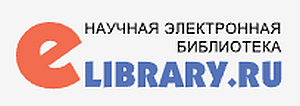Transformation of Ethical Standards in Modern Science (Comparative Study)
DOI:
https://doi.org/10.47850/RL.2022.3.4.99-109Keywords:
academic science, post-academic science, industrial science, ethos of science, imperatives, values, commercialization, transformation.Abstract
The article aims to assess, based on recent research, the transformations the science’s ethos. The study is comparative in many respects. We used the results of empirical studies of the scientific community of modern Poland and the Republic of Korea, the methodological basis of research is the concept of the scientific ethos by R. Merton. The results show, on the one hand, a profound transformation of the ethical principles of science, which leads to the stratification of the scientific community into several types (academic, industrial, post-academic science, marginal group). On the other hand, scientists consider classical norms as an example of the correct structure of science. We also argued that similar processes are typical for modern Russian science.
References
Аблажей, А. М. (2019). Институт аспирантуры в постсоветский период: сравнительный анализ (часть 2). Философия образования. Т. 19. № 3. С. 46-56.
Ablazhey, A. M. (2019). Post-graduate studies in the post-Soviet period: comparative analysis (part 2). Philosophy of Education. Vol. 19. no. 3. pp. 46-56. (In Russ.)
Агацци, Э. (2009). Свободна ли наука от ценностей? Вопросы философии. № 10.
С. 93-104.
Agazzi, A. (2009) Is science free from values? Problems of Philosophy. no. 10. pp. 93-104
(In Russ.)
Deep fake Science, кризис воспроизводимости и откуда берутся пустые репозитарии. (2019). [Электронный ресурс]. Хабр. URL: https://habr.com/ru/post/480348/ (дата обращения: 10.11.2022).
Deep fake Science, the Reproducibility Crisis and Where Empty Repositories come from. (2019). [Online]. Habr. Available at: https://habr.com/ru/post/480348/ (Accessed: 10 November 2022).
Кун Т. (2002). Структура научных революций. М.
Kuhn T. (2002). The Structure of Scientific Revolutions. Moscow. (In Russ.).
Корсани, А. (2007). Капитализм, биотехнонаука и неолиберализм. Информация к размышлению об отношениях между капиталом, знанием и жизнью в когнитивном капитализме. Логос. № 4. С. 123-143.
Corsani, A. (2007). Capitalism, biotechnoscience and neoliberalism. Information for reflection on the relationship between capital, knowledge and life in cognitive capitalism. Logos. no. 4. pp. 123-143. (In Russ.)
Мертон Р. (2006). Наука и демократическая социальная структура // Социальная теория и социальная структура. М. С. 767-781.
Merton R. (2006). Science and the democratic social structure. The Social Theory and Social Structure. Moscow. pp. 767-781. (In Russ.).
Мирская, Е. З. (2011). Р. Мертон и его концепция социологии науки. [Электронный ресурс]. URL: https://smolsoc.ru/index.php/home/2009-12-24-13-38-54/74-2011-08-11-09-26-55/2439 (дата обращения: 14.11.2022).
Mirskaya, E. Z. (2011). R. Merton and his concept of the sociology of science. [Online]. Available at: https://smolsoc.ru/index.php/home/2009-12-24-13-38-54/74-2011-08-11-09-26-55/2439 (Accessed: 14 November 2022).
Семенов, Е. В. (2006). Сфера фундаментальных исследований в постсоветской России: невозможность и необходимость реформы. Наука. Инновации. Образование: Альманах. М. С. 28-61.
Semenov, E. V. (2006). The sphere of fundamental research in post-Soviet Russia: the impossibility and the need for reform. Science. Innovations. Education. Almanac. Moscow.
pp. 28-61. (In Russ.)
Сторер, Н. (1972). Социология науки. Американская социология. Перспективы. Проблемы. Методы. М. Прогресс. С. 248-264.
Storer, N. (1972). Sociology of Science. American Sociology. Perspectives. Problems. Methods. Moscow. pp. 248-264. (In Russ.)
Bielinski, J., Tomczynska, A. (2019). The Ethos of Science in Contemporary Poland. Minerva. no. 57. pp. 151-173.
Fuller, S. (1997). Science. Concepts in Social Sciences. Open University Press.
Mitroff, I. (1974). Norms and counter-norms in a select group of the Apollo Moon scientists: a case study of the ambivalence of scientists. American Sociological Review. Vol. 39, no. 4. pp. 579 595.
Kim, S. Y., Kim, Y. (2018). The Ethos of Science and Its Correlates: An Empirical Analysis of Scientists’ Endorsement of Mertonian Norms. Science, Technology and Society. no. 23. pp. 1-24.
Ziman, J. M. (2000). Real Science: What it Is and What it Means. Cambridge University Press.
Downloads
Published
How to Cite
Issue
Section
License

This work is licensed under a Creative Commons Attribution-NonCommercial-NoDerivatives 4.0 International License.
https://oc.philosophy.nsc.ru/remote.php/webdav/%D0%94%D0%BE%D0%B3%D0%BE%D0%B2%D0%BE%D1%80%20%D1%81%20%D0%B0%D0%B2%D1%82%D0%BE%D1%80%D0%BE%D0%BC%20RL-%D0%BF%D1%80%D0%B0%D0%B2.doc










